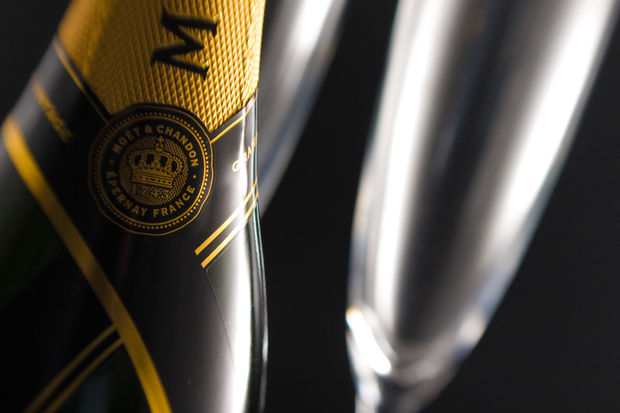
Counterfeit Champagne seizure a warning to industry, brand expert says
Italian police have seized some 9,000 bottles of counterfeit Moët & Chandon Champagne near Padova in northern Italy.
Authorities estimate that the bottles, filled with sparkling wine, would have had a commercial value of around £1.4 million had they reached the market.
Eight counterfeiters were arrested in the raid.
The news is a warning to the sector that is must do more to protect both its intellectual property and its consumers, a brand reputation expert has claimed.
Haydn Simpson, commercial director at online brand protection specialists Net Names, said: "This case is just the latest in a string of reports of counterfeit food and drink products saturating the global FMCG market.
"Developments in technology have seen fake packaging become increasingly convincing, and often adulterated food and drink is difficult to detect without a taste test, until it has caused serious damage to the consumer's health and a brand's reputation.
"It is important that brands are proactive and educate their customers on how to identify imitations of their brand by highlighting known counterfeit operations, and even set up dedicated web pages that allow consumers to report fake products and where they were purchased."
In many cases, fraudsters use toxic ingredients to replicate the effect of alcohol.
A common choice is methanol, which can be fatal, although other solvents have been found in goods seized by the police, including paint stripper.
A consignment of counterfeit Jack Daniels killed some 15 people in the Siberian city of Kransoyarsk late last year, Russian authorities reported.
"If poor-quality imitations of a brand are left undiscovered, the consequences can be serious," Simpson said. "This can include damage to hard-earned reputations and customer loyalty, and most worryingly a negative impact on the health of the consumer.
"With a strong brand protection plan in place, brands can fight back against this counterfeit threat."
The overall size of the counterfeit alcohol market is unknown, but it has been estimated to cost the Scotch industry alone some £500 million a year.




